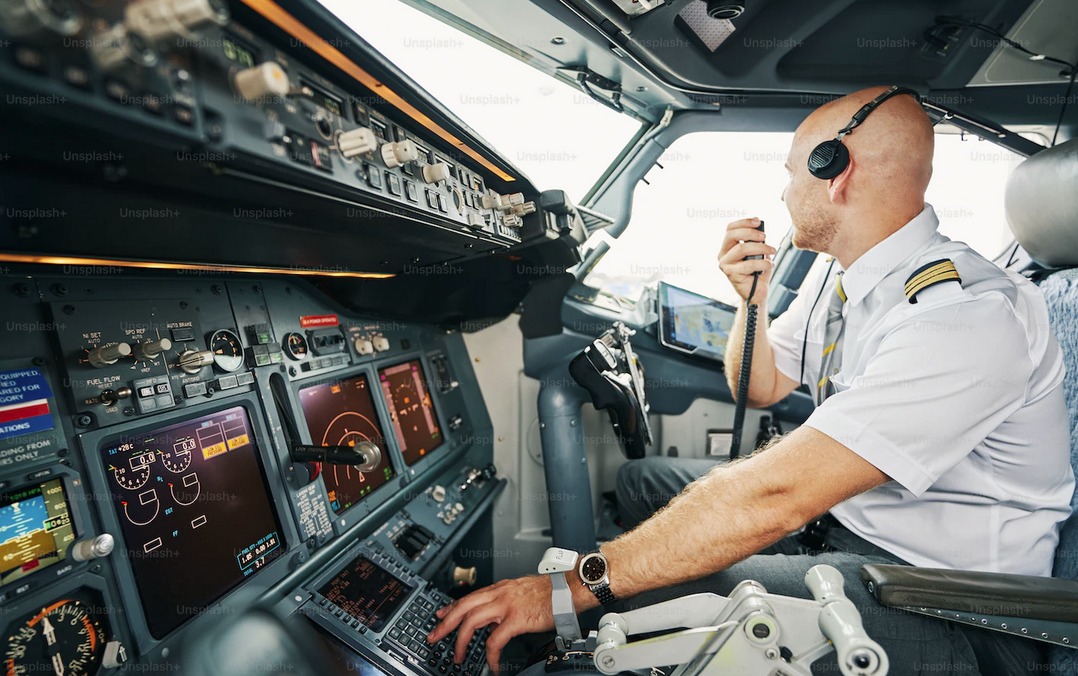Dignified and Old

July 26, 2023
A PROPOSAL is moving through the U.S. Congress right now that would increase the mandatory retirement age for pilots from 65 to 67. The proposal has momentum and bipartisan support, and many expect it to become law.
Count me among those hoping this happens.
Those pushing for the change cite the ongoing pilot shortage as one of the reasons. Fair enough, though for me it’s more personal. For one, I really enjoy my job. As things currently stand I have eight years left, and I’d love to stay at it for a couple more (assuming all the radiation exposure doesn’t kill me first). But perhaps more importantly, I have a substantial amount of lost income to make up for, having been laid off for half a decade in my mid-thirties — prime earning years.
Not everyone is on board, including Transportation Secretary Pete Buttigieg. Also among the opposers is the Air Line Pilots Association (ALPA), the world’s largest pilot union. This might seem a bit of a head-scratcher, and I suspect their resistance is owed to demographics: pilot rosters are skewing younger and younger these days, and many of the newest pilots see age 67 as a threat to their career progression. Older pilots like me will stay on the property slightly longer, the thinking goes, impeding their seniority advantages (aircraft bidding, seat bidding, and so forth).
Forgive me if I’m less than sympathetic.
In 2001, after slogging it out at the regionals and a cargo carrier for nine years, I was hired by a major carrier at age 35. Starting annual pay at the time was around $30,000, and I was promptly furloughed in the wake of the September 11th attacks. (My ensuing gig as an online columnist and author was fun, but by no means lucrative.)
While I was out of work, my airline, along with several others, declared bankruptcy. Industry-wide, wages were cut some 40 percent and retirement plans eliminated.
Then, in 2007, shortly after being recalled, the retirement age was extended not merely two years, but five, from age 60 to age 65. Not only did I miss out on several years of major airline salary, but the minute I got back, seniority movement slowed to a crawl.
You wanna whine about threats to your career progression? Try five years of furlough, a bankruptcy, and a massive seniority slowdown first.
If this sounds like a sob story, it’s not just mine. Thousands of other airline pilots went through all of the same things — or worse.

The industry has since changed dramatically, and pilots entering the ranks today have never had it better. It’s common now for the legacy carriers to bring on pilots in their mid-twenties, and under the latest contracts, new-hires are earning in their first one or two years what it used to take a decade or more to make. When I returned from furlough, my sixth-year first officer hourly rate was $65 per flight hour. Pilots are now making $100 or more per hour on day one.
These same pilots are upgrading to captain in record time (at some airlines, new-hires are getting widebody captain slots), and otherwise racing up the seniority lists. Projected over a thirty or forty-year career, the earning potential for a pilot hired today is absurd. Adjust for inflation all you want; the differential over any length of time is huge.
I should mention also that salaries at the regional carriers have vastly improved. Most airline pilots begin their careers at the regional level, and here too they are cashing in. In my day, starting pay at the regionals was under $20,000 a year, working conditions were abysmal, and in some cases you had to pay for your own training. Today an RJ pilot can easily bring in six figures. You can make a good living even before scoring that dream job with a major.
To say nothing of the fact that junior pilots skated through the COVID-19 fiasco without so much as a hiccup. Thanks to the taxpayer bailouts, they avoided furloughs and in some cases were paid nearly a full salary to simply stay at home for a year. Many of them took on second jobs and collected two salaries.
For those of us of baby-boomer and Generation X vintage, such fortune is difficult to fathom. Hence, when I hear some twentysomething hotshot whining about the “damage” the age 67 change might wreak, my reaction is a combination of exasperation and bemusement. You’ve got to be kidding.
Wars, recessions, and any of a dozen other calamities could set the industry reeling yet again, it’s true. But that doesn’t offset the tremendously good fortune the newest pilots are currently basking in. I, along with thousands of my peers, faced those same risks, but without the front-end benefits of today’s generation. Things might go sour at some point, but if nothing else they’re making fantastic money in the meantime. For us that wasn’t the case.
All told, it has never been a better time to be a pilot.
If you’re worried about competency, training cycles and medical certification standards are there to ensure older pilots are up to the task. And, I should add, nobody is going to force you to work until 67. You’re free to retire at 65, or any other age at which you feel comfortable. And the extra two years aren’t just for the older workers; they’re for the new-hires as well, eventually.
The idea isn’t without its complications. Most foreign authorities remain committed to the age 65 limit, effectively blocking any U.S. airline pilot over that age from flying beyond American borders. Unless that changes, pilots between 65 and 67 would be restricted to domestic-only routes. This will cause some training headaches and require some finessing of airline seniority lists, but it’s certainly doable.
You’ll maybe detect a tone of resentment in this piece. That’s not quite how I mean it. Much as I might be jealous, I cannot begrudge anyone the advantages of youth and fortuitous timing. Good for them. Just please don’t take it for granted. They need to understand how lucky they are, and how different things used to be. While most new pilots realize this, there are those who don’t, and who seem to think they’re entitled to a hassle-free career and a bursting bank account before they’ve hit 30. If you’re in that camp, try to understand why and how, to some of your older coworkers, griping over a two-year age extension sounds greedy and petty.
Related Story:
THE REGIONAL RECKONING.
Photo courtesy of Unsplash.
Numbers graphic by the author.





Leave a Comment
Maximum 1500 characters. Watch your spelling and grammar. Poorly written posts will be deleted!
36 Responses to “Dignified and Old”
You are viewing newest comments first. Click to reverse order
A perspective from Australia:
For international flights Australian pilots have to comply with ICAO (age 65) but for pure domestic routes pilots can fly forever (age 99 if they’re fit enough) due to anti discrimination laws. As long as they can pass a medical and pass sim checks it would be illegal to discriminate against them.
A problem that arises is by by age 65 a lot of pilots have seniority to be flying long haul wide body aircraft on international routes, so to continue flying past age 65 they need to transfer back to narrowbody domestic aircraft. This means a total shift from flying on long sector once or twice a week to flying 3 or 4 short busy sectors per day. And potentially a move from Boeing to Airbus. The different aircraft and busier schedules is something a lot of pilots over 65 can’t cope with. Air New Zealand had an issue with this several years ago finding a lot of pilots at age 65 were failing training courses (and who couldn’t be told they weren’t competent enough to fly safely):
https://i.stuff.co.nz/business/81195647/elderly-pilots-claim-air-new-zealand-shafted-them-over-airbus-training
Personally I think I’ll have better things to do at age 67 than multi sector days through busy airports in bad weather with tech write ups, passenger issues and constant aircraft swaps and disruptions.
For what it’s worth: I fly both long-haul international and multi-leg domestic trips. For me it’s the long-haul schedules that are the more fatiguing and demanding. Short-haul flying has its hassles and annoyances, but overall it’s easier, even with more legs.
Also, more senior pilots can usually avoid those multi-leg days. Many of our domestic trips are quite civilized, with no more than one or two flights per day, decent layovers, etc.
Kinda a hypocrite. Being against age 65 and in favor of 67. I get it, all is fair in love and war. Personally I’m not in favor of this and I find it astonishing that those who are complaining the most now, never spoke up about mandatory retirement until it effected them personally. Newsflash, a mandatory pilot retirement age isn’t something new, and most pilots are in favor of age 65. All the best
The real cut-off should be ability not age. There are 70-somethings who are healthier, fitter and abler than 50-somethings. And there are 30-somethings who are ticking time bombs healthwise. If a person is fit to fly— physically, mentally and emotionally healthy and retains sufficiently quick reaction time—they should be able to continue working if they choose.
If the current periodic medical testing is insufficient (which some recent news suggests it may be), it should be improved. Individual health and rates of aging vary widely so this is the key factor in safety and ability to keep flying.
(And amen whoever said there should be a mandatory retirement age for politicians, especially those in the highest leadership positions!)
Julia
So, it’s safe to assume you would have been against raising the age to 67 back in 2007.
Then why are you in favor for it now? Could it be because now you are at the highest seniority you’ll ever hold, and then you weren’t?
I love the way in which you unintentionally and unironically undressed your own logic in the above ridiculous screed.
Let me guess: you’re a young new-hire making in your first year or two what it took me 20 years to make. You’ve never been furloughed, never will be furloughed, and you skated safely through COVID. Yet you’d begrudge your colleagues the chance to work an extra two years to make up what they lost during layoff and bankruptcy. What a swell guy.
Am I wrong?
And, you call people “boomers” who’re actually Gen-X demographic or younger. Baby boomers are people in their 60s and 70s. Bill Clinton is a boomer. Most are retired already.
But rather than we just snipe at each other, let me ask you this:
What are your reasons for OPPOSING the age 67 rule? You imply that mine are selfish; let’s hear yours and see how different they are.
And yes, I was mostly opposed to the age 65 thing back in 2007. The difference is, I was 40 years-old and just back from furlough, with almost no money to my name. I’d already been through a five-year layoff and two airline bankrupcties. I was not a twentysomething new-hire making six figures with 45 career years ahead of me.
Patrick:
Well said sir, well said. You’re one of the best when it comes to articulating the thoughts of many.
One of the best pilots I’ve ever flown with, too.
Greg
I know where the title to your article comes from. Long live the Modern Lovers!
🙂
The basic principle surely it that no-one should be forced to retire unless there’s a genuine safety reason to make them do so. Indeed that’s now the law here in the UK. Some pilots might be unsafe before 65 (hence why medicals are required), others not.
“So many of today’s pilots dodder and hack away at parking lot gates with axes! Who carries an axe in the car? Retirement mandatory at 45 and get a Hondajet!”
Andreas Lubitz was 27.
They Shoot Horses Don’t They? (ca 1969)
But if you think about it, 2023-67=1956 which was when: they were finalizing B-707 and trying to get over the Comet. So many of today’s pilots dodder and hack away at parking lot gates with axes! Who carries an axe in the car? Retirement mandatory at 45 and get a Hondajet!
ok boomer
(you made that too easy)
I agree.
And politicians should place a mandatory retirement age on themselves!
“at some airlines, new-hires are getting widebody captain slots”
I’m having trouble imagining this. Doesn’t every new-hire start with a dismal bidding number?
“training cycles and medical certification standards are there to ensure older pilots are up to the task”
Certainly each individual is different. But “Sometimer’s Disease” sort of sneaks up on you. I’m 68 & was remarking to someone just yesterday that I can rattle off the names of Nixon’s inner circle during Watergate, but do I remember where I left my glasses? No.
My father was a United Airlines pilot from 1940 to 1968 when he was forced to retire at 60 years old. It devastated him that he was tossed out at that young age and flying around our Cherokee 140B just didn’t do it for him. He tried some other jobs like real estate but they just weren’t his gig so he fell into depression which probably accelerated his passing at just 75. I am sure that if he’s been able to have flown another 5-7 years it would have made a huge difference to him. Now at nearly 65 myself and still working as a computer programmer and without the pension that he received I have no plans to retire and will easily work will 70 or more (my mother worked until 89 as a waitress). IMHO retirement should be based on physical and mental agility, for some that may indeed be 60 and for some that may be 75 and personally I’d be fine with dumping age as a factor at all and making it completely variable.
You are selfish jerk. Us that lost our pensions are still alive, and could have worked another 5/10 years. Why don’t you work another 10 years to pay off our pension?
Check out an article at “One Mile At A Time” titled “Airline Pilots Don’t Want to be Promoted to Captain, And It’s a Problem” It’s why new hires are becoming Captains so young.
Patrick,
You are exactly right. My career timeline is not too different from yours, except that I’m in maintenance instead of flight ops. We don’t have the mandatory retirement age problem, but physical work on a flight line isn’t ideal for the elderly. Luckily, the old guys who stick around tend to serve more as mentors for the young (as a force-multiplier) rather than making individual contributions night after night.
Still, we had the same career experiences as the flight crews after 9/11 and the decade that followed. For me, more than half of those years were either a pay freeze, or a pay cut. Getting a raise every year (my reality for the last ten) was unexpected.
It’s a great time (the best ever) to be a pilot. The same is true for technicians, and boy do we need more of them.
You (hopefully) benefited from the run up in stock and house prices the past decade. It’s possible the new hires in their 20s now won’t have the same advantage over the next 10 years. Seems like who had it the worst was pilots retiring 15-20 years ago with a generous pension that was destroyed in airline bankruptcies.
I just read Ernest Gann’s “Fate is the Hunter”. $2 at a Goodwill. Thought it was mesmerising. Your opinion?
So many, ruined by Icahn type restructures, CAB destruction,UAL’s criminal bankruptcy ploy. etc. and these miscreants continue their machinations to this day. I had my 37 year pension cut 40% because i chose retirement after being furloughed by UAL.I could have bumped, of course. Just a Lead Storekeeper, but Congressional rules meant for pilots were applied to me by the PBGC.I won awards at UAL, but I may use them for target practice before more time passes.They have ruined standby, raised medical premiums, while throwing away billions on lobbying, hair-brained schemes, and bonuses. Only just that as warming climate starts to kill us all, and mandates restrictions on pollution,their stranglehold on an unwitting public will ease.
I had my retirement flight on my 65th birthday but hung around in the sims for another three years. Like Patrick, I loved my job and had good health enough to last – I had perfect attendance for over twenty years with my last carrier.
I really had no opinion until reading Patrick’s piece and now I’m on his side.
Michael DeBakey was still operating in his 80’s, but always with a younger surgeon who could catch errors and complete the procedure, not so much a co-pilot as a baby sitter. I quit doing surgery at age 66, I hoped before I screwed anything up. Glad I did.
An ATP rating involves a lot of hours, a huge investment in training, and the acquisition of vast experience. Be a shame to waste all that if someone is otherwise healthy, particularly in light of all the on-going testing you folks undergo routinely.
Where we need age limits is in government!
I’m 68 and was forced to retire from a major airline. I resent the hell out of being forced. Being retired is great but being told I’m not safe!!!
+ what the Hel is wrong with ALPA? They seems to pretty much suck….lots of contact over the years.
I’m in perfect health …exercise and eat real food… Geez most pilots I knew would have a cheese burger and junk every tine we landed.
I am all for extending the age max. People age at different rates and understanding the on-going training and physical exams as a passenger (I am not a pilot) and am perfectly comfortable with older pilots.
I am a bit ambivalent either way. But raising the age INCREASES the supply of pilots thereby, decreasing cost. It takes a long time for that to make its way through the system but the laws of supply and demand will eventually catch up.
The 1500+ hour rule was the best thing to happen to airline pilot incomes in the last 50 years. At least we kept that. Sure ALPA trumpets safety but it also comes with a major supply reduction which is good for all of our incomes.
The only major issue I have with your point is that you claim you “have a substantial amount of lost income to make up for”. You have chosen to remain an FO when you could have been a Captain for many, many years. Of course it is for seniority and I’m sure you have been able to do well in the right seat, but if lost income was your priority you would have made that move years ago, so it doesn’t hold much water.
Question for Patrick – do you plan to remain as a senior FO for the rest of your career? Or do you plan to bid for Captain before retiring?
The TLDR version of this debate sounds to me like a bunch of sour old guys saying “we had it rough, so today’s youngsters ought to have it rough too, strengthens character, yada yada”. While as an old guy myself I can find some merit in that, it’s also crystal clear to me that by that logic nothing would ever improve. When things get better, inevitably, youngsters will have it better than we did. But should progress stop because of our bruised egos? Heck no.
Been there too!!! 67 will be the new NORM
I totally agree with the author. I for one, are all in for the 67 retirement law. I too paid my dues, flew military, went to war, got experience, left Active Duty for the airlines (stayed flying in the Reserves, only smart move), and had to endure the pain and agony of airline flying in the 1980’s-90’s-2000’s, putting up with airlines requiring you pay for type ratings (or FE certificate), no training pay until your 121 PC check was completed, no hotels provided, brutally low pay, etc, etc, as well as putting up with 4 (yes, four) airline Chapter 11 bankruptcies!!! About the only good things that happened during those years was that we kept invading countries and having wars, which allowed us furloughed pilots a chance to go back to Active Duty and get more combat time (like we needed more). Today, pilots can start at just about any Regional flying a nice Jet (not a Beech 99 or a Metroliner) for at least 100/ hr, and get a fast promotion to the left seat making 150+/hour. Life is grand now! Let’s all take a step back, enjoy what you have, and let us older but very experienced pilots (27K plus hours in my case) get a chance to put a couple more years in the retirement account. And if an older guy is all set, and didn’t have multiple Chapter 11’s, I bet they will be happy to retire at an earlier age, maybe earlier than 65, and give the younger generations a few more left seats. But some of us really need this!
> Working conditions for the entire world have improved over the time period you reference…
> People both in the USA and overseas are holding down more than one job …
Given that most (not all, but most) people doing 2 or more jobs are doing them simply to make ends meet I don’t think you can make the claim that working conditions have improved for the entire world. They may have improved for “professionals” in rich countries, but for poor(er) people in any country, not a snowball’s chance. When you’ve got a few minutes look into the working conditions at Amazon’s warehouses or meat packing plants in the US. Then there are the people working stupidly long hours in China and other countries to provide us with cheap electronic goods. How about the poor devils picking over the rubbish dumps outside some of the larger African cities to recover saleable scraps or the men breaking ships for scrap on beaches on the Indian sub-continent with no protection from toxic materials whatsoever nor any safety gear? And closer to (my) home, refugees and other migrants being treated as de-facto slaves in all sorts of industries. Sorry, but for large parts of the world’s population work is poorly paid & dangerous to the point of being fatal and shows no signs of ever being anything but.
> The world is exponentially safer by every metric imaginable…
Sorry, but no. In the 1920s we didn’t have loonies with nuclear weapons nor a climate crisis.
I don’t think I read anything that makes as compelling a case as this article. I think you nailed it; although, sadly, I am not a pilot, and not part of ALPA, so my “vote” doesn’t carry any weight.
But there are some things I will leave you with:
Working conditions for the entire world have improved over the time period you reference. Professionals are able to work remotely and have a perfect work/life balance. The minimum wage for non-skilled jobs is the “highest it’s ever been” (using your own non inflation-adjusted words there). Overseas almost the entire world is employed in meaningful work that is able to provide for their family.
People both in the USA and overseas are holding down more than one job and their leveraging their skills for multi income generation, similar to what you are doing with this blog and your non-pilot work. The world is exponentially safer by every metric imaginable, including the FBI zone. While there might be a the war being fought in Ukraine and many threats around the world there’s nothing like we had to deal with 100 years ago even remotely close. Every person in the world is healthier too.
I’m not diminishing your blog post at all. The opening sentences I wrote give my 100% support to you. But to be fair: It has never been a better time to work anywhere and it has never been a better time to be born.
Sorry, your time has passed. Maybe during your “prime earning years” you should have organized as a unified work group and fought for the pay you deserve.
I’m sorry but claiming that my “time has passed” is not a rebuttal of my points. It’s not anything. As to organizing as a “unified work group,” my airline has been ALPA carrier all along. The entire industry was essentially bankrupt for a period of years and thousands were furloughed. What exactly were we supposed to do?
> When I returned from furlough, my sixth-year first officer hourly rate was $65 per flight hour. Pilots are now making $100 or more per hour on day one
What do those numbers look like when you adjust for inflation? (Hard mode: use an inflation number that doesn’t exclude housing costs). How do they compare to the costs of learning to fly in the relevant years?
Sixth-year pay in 2007 was around $65 per hour. FIRST-YEAR pay in 2023 is $100-ish. Opening salaries when I was a new-hire were in the $30,000 range, and most of us came from long tenures at the regionals where wages were dismal. Starting pay has tripled/quadrupled and you can make a good living at the regionals now too. You can plug the numbers into one of those inflation calculators… the earning differential is still huge.